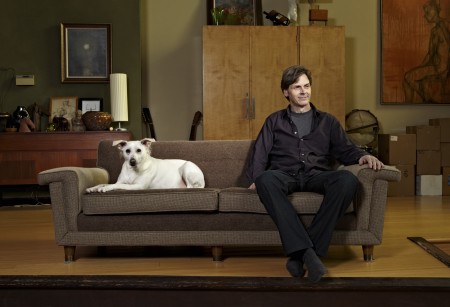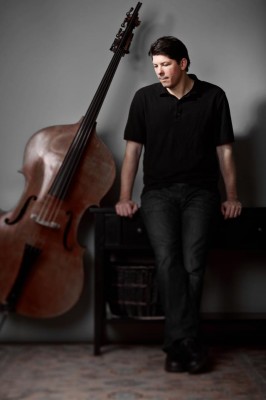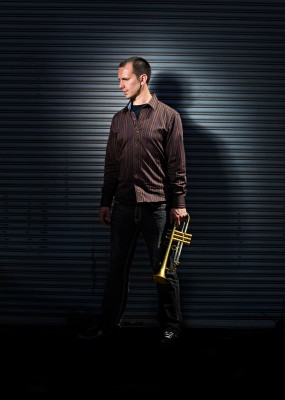Interview and photo by Steve Korn

When I was 14 I was playing first chair French Horn in band and was starting to gather an interest in the sound of the bass in recordings. But I had no clue that I was going to choose music as a career let alone play bass.
The bass is not a cello and I get more gigs than if I played the flute.
If I could do it all over again, I’d shave first.
Practice makes the odds better that the bass doesn’t kick my butt.
When I look at where I’m at right now, I feel grateful and fortunate with the career that I have had and the people I have met along the way.
The piece of music that always seems to follow me along is the ‘Enigma’ Variations.
Some of my best ideas come to me when I am jogging or listening to music while I’m driving in the car.
My parents, both musical themselves, were very supportive and influential in my musical career. They both confided in me later on that out of the four brothers and one sister, they had quietly thought from early on that I would be the career musician in the family.
Fear is being inconsistent.
Motivation is one of my biggest nemesis.
As I get older, I’ve realized that there are really no insignificant gigs.
The thing about Greta is she is the best thing that ever happened to me.
In the big scheme of things, what really matters is my family, friends and playing music.
I cried when I lost my good friend and mentor, Jack Brownlow.
Music has taught me the value of staying in present time.
Music is an easier and more universal language for me. Playing music is my one true connection to the spiritual and its infinite possibilities.
I chose the bass because my brother Rocky told me the bass was a cool instrument and to check it out. I did and he was right. I sometimes feel that the bass actually chose me.
When I’m stuck during a solo I have to remember to breathe.
Improvisation is the best expression of me at that moment.
The thing that makes me nervous on stage is internal dialog.
When I’m playing well, it feels like nothing else.
If I could have made a career on another instrument, it would have been the piano. When I dream about playing another instrument, it is always a piano with the singular exception of a dream in which I played a smokin’ solo with a fork and a Tupperware bowl filled with tuna salad.
Clipper Anderson is one of the Northwest’s leading bassists. Playing all styles on acoustic and electric bass, Clipper is a composer, studio musician, vocalist, and educator. He was described in Seattle’s premier jazz magazine Earshot as “a player for the connoisseur to savor.” The list of recordings on which Clipper appears is both long and impressive. He has performed with jazz artists Michael Brecker, Randy Brecker, Terry Gibbs, Peter Erskine, Bob Berg, James Moody, Jack Jones, Paquito D’Rivera, and Buddy DeFranco. Clipper appears at jazz festivals throughout the Northwest and Canada and has been a featured guest artist annually at the Buddy DeFranco Jazz Festival at the University of Montana and the Port Townsend (WA) Jazz Festival. He currently teaches jazz bass studies at Pacific Lutheran University.
For more information about the Leading Questions Project, click here.




 The best advice I’ve ever received is “you’re not talking to an audience of thousands, you’re talking to thousands of audiences of one or two.”
The best advice I’ve ever received is “you’re not talking to an audience of thousands, you’re talking to thousands of audiences of one or two.” 
 Interview and photo by Steve Korn
Interview and photo by Steve Korn Note: Greta Matassa will be performing in Portland tonight through Saturday. Thursday, June 10 at Brasserie Montmartre and Friday-Saturday at Wilf’s Resaurant and Bar.
Note: Greta Matassa will be performing in Portland tonight through Saturday. Thursday, June 10 at Brasserie Montmartre and Friday-Saturday at Wilf’s Resaurant and Bar.
 Photo and Interview by
Photo and Interview by  Photo and interview by
Photo and interview by 



